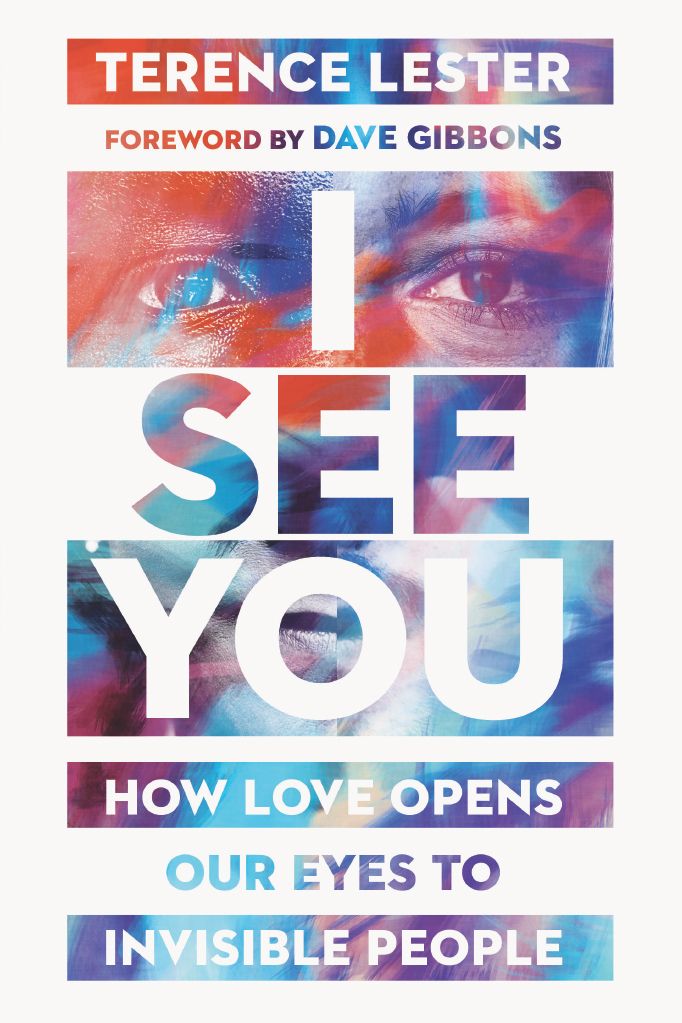
Equal parts testimony, analysis, and exhortation, at first glance Terence Lester's soon to be released I See You: How Love Opens Our Eyes to Invisible People is about the growing population of homeless individuals along with assorted "others than us" we don't perceive as part of mainstream society. However, as the late, highly admired and regarded Henri Nouwen observed, everyone is impoverished in some way, and surprisingly, "that’s the place where God wants to dwell! 'How blessed are the poor,' Jesus says (Matthew 5:3). This means that our blessing is hidden in our poverty. ... Let’s dare to see our poverty as the land where our treasure is hidden." from Bread for the Journey
So I See You is about all of us.
Terence tells us poverty of any kind is about lack of access, but that's only a starter. And yes, much of this book does focus on the economic and material impoverishment that often leads to individuals and families finding themselves without physical shelter, the poverty that happens because of lack of human connections, lack of a community of support and participation.
Have you noticed how homelessness and poverty tend to be systemic and multi-generational? Lester dreams of eradicating (especially) systemic injustice. I see You chronicles the author's own experiences and his observations of others who've been poor; it particularly testifies to Terence's – and other's – experiences of being seen clearly enough to have their needs acted upon and met by people acting as God's agents—as God's eyes.
13Hagar answered God by name, praying to the God who spoke to her, "You're the God who sees me! "Yes! He saw me; and then I saw him!"
14That's how that desert spring got named "God-Alive-Sees-Me Spring." That spring is still there, between Kadesh and Bered. Genesis 16, The Message
The author reminds us scripture has over two thousand references to poverty and justice; we need to recognize aspects of justice include distributive, retributive, restorative, and procedural. Possibly others, as well, though they may be sub-sets of these primary types. Quite a while ago senior pastor asked what classes I was taking and I mentioned one called "Poverty and Justice." Senior pastor responded with a longish speech about the criminal (retributive) justice system and the highly disproportionate number of persons of color and others without economic means who remain incarcerated. I replied, "No! You're thinking of retributive justice! This course is about distributive justice! Who gets what, how, when, and why!" Most poverty seems to happen because of disconnects in distributive justice that often cascade into other injustices.
Hagar's God who sees me is a God who sees each of us as we really are. That includes individuals with massive financial resources it's easy to stereotype as having everything; it includes people in ragged clothes holding a Please Help! sign at the freeway entrance. What stereotypes do you need to start breaking down? What ones do I still hold onto?
Scripture tells us, Jesus shows us how God created humanity in the image of the divine. In the power of the Holy Spirit of life, God calls and enables us to claim that divine nature and live as God's presence on earth, to act as God's voices, hands, feet, and eyes everywhere we go.
Almost everyone underestimates what a "regular" person can accomplish. Terence advises each of us, "Do something, anything for the [solitary] one." I like to remind my adult Sunday School class everything we do is synergistic and adds up to far more than the sum of our small, individual actions and prayers. "Prayers"? Yes. Read the gospels! Jesus always prayed before taking any significant action, before making any response to human need.
"Where will you start after reading this book?"
With God's blessings to us concealed in our own poverties, with God's blessings and presence in those we see and encounter hidden in their own unmet needs, in the power and the grace of the Holy Spirit, each of us can be the spring named God-Alive-Sees-Me as previously invisible people become visible to us.
Some link love:
• Terence Lester online
• Terence on Facebook
• Terence Lester's Instagram
• Terence Lester on twitter
• Love Beyond Walls, an organization Terence and his spouse Cecilia started to draw attention to homelessness and poverty and to help mobilize people in situations of poverty into a full future.
Notice of Material Connection: As a member of the launch team, I received a complimentary pre-publication copy of this book with no requirement or expectation I'd write a positive review. As always, my opinions are my very own, and I wouldn't have it any other way.
my amazon review: vision and hope

No comments:
Post a Comment
thanks for visiting—peace and hope to all of us!